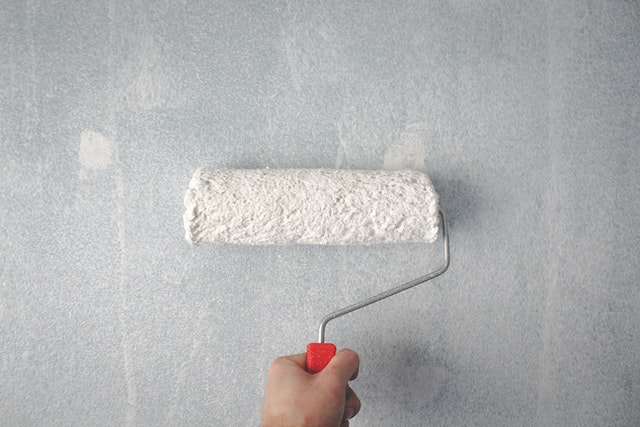.png)
Retaining good tenants is one of the top priorities for rental property owners. As a landlord, you want to know that your tenants will renew their lease after the previous one expires. In most cases, it’s best to prolong a lease instead of finding someone else to fill the unit.
Marketing the rental property and finding new tenants can be time-consuming and exhausting. Not to mention that you don’t earn income while your property is vacant. Learning that your current tenants are extending their stay is an ideal circumstance.
However, if you rush into a renewal without conducting a proper renewal screening, it can lead to stressful issues, disputes, and other costly situations that could have been easily avoided.
Lease renewal screenings are essential to prevent future problems with tenants, such as holdover tenants. Even if you already know the tenants and have screened them before they signed their first lease agreement, a lot could have changed during the term of the tenancy.
With a renewal screening, you’ll be able to find out how your tenants have fared since the last screening. Through this, you’ll be able to prevent any future problems that could lead to possible evictions.
Benefits of Renewal Screenings
One of the most common mistakes of many landlords is taking lease renewal screenings for granted. Oftentimes, landlords skip renewal screenings if they have already built rapport and trust the tenants. It is often thought that if the renters proved themselves to be trustworthy, then it is unnecessary to screen them again.

While positive past experience with the tenants can make you trust that they won’t become problematic, they don’t guarantee that you won’t encounter any issues with them moving forward. Keep in mind that a lot could change during the duration of a lease that you are not aware of.
Only by performing a renewal screening can you identify if you will encounter potential problems with them.
Here are the benefits of renewal screenings:
Updating the tenant’s status: Even if you are in a good relationship with your tenant, there’s a possibility that you may not be updated with their current status. Only by conducting a renewal screening will you know how they fare when it comes to their finances, credit, and other backgrounds that may affect your rental business.
Saving on costs: Re-screening tenants can help you save on unnecessary costs. By screening your tenants again before letting them renew the lease, you’ll be able to identify issues that may cause extra costs.
Staying in the know: You don’t want to add unnecessary problems to running your rental unit by skipping renewal screenings. Re-screening tenants can keep you updated on statuses and put your mind at ease. It provides you with proof that the tenants will remain responsible for the next lease term.
Goal of Renewal Screenings
Before you start the renewal screening process, it’s essential to know what you are looking for. Here’s a guide you can use:
Credit Record: To understand the financial health of your tenants, checking their credit records is necessary. These reports may change in between leases, so it’s a good practice to verify their credit again before you let them sign a new lease.
If you report their rent payments to credit bureaus, it can help boost your tenants’ credit scores if they make consistent on-time payments.

Income: You may require your tenant to submit a recent copy of their W-2 statement to verify their income status. Financial verification is important because it says a lot about your renters’ abilities to pay their rent on time. Even if you have verified their income during the prior lease, it is best to check again.
Criminal Background: No matter how well you think you know your tenants, there may be things that they choose not to tell you about, and one of these is if they have been involved in certain criminal or legal issues.
It’s important to check your tenants’ court history and recent criminal record to ensure that you won’t be having problems with them extending their stay.
After performing all the formal checks mentioned above, you should also perform soft background checks. Consider the behavior of your tenants and all other members of the households while they are staying at the property.
Verify if they pay their rent on time, perform their duties and responsibilities as stipulated in the lease agreement, and if they respect your property. Tenants that should remain will check all these boxes.
Moreover, you may conduct a physical inspection of the property to see whether or not the premises have been well taken care of, or if there are damages that are well beyond normal wear and tear.

Additionally, performing a background check with the neighbors is also a good idea. You can interview them to ensure that the tenants did not cause any problems during their tenancy that you were not aware of. Speaking with the neighbors can give you a better picture of how good residents your tenants truly are.
Follow the Law
Renewal screenings can help you avoid potential problems in the future. Before you conduct the renewal screening process, make sure to keep these things in mind:
Follow the FHA Guidelines: The Fair Housing Act is a law that prohibits landlords from discriminating against tenants based on sex, race, nationality, religion, skin color, familial status, and disability status. Make sure that all your screenings are non-discriminatory.
Disclose Renewal Screenings: To prevent tenants from questioning your requirement to undergo renewal screenings, it’s vital to disclose this in the lease. Including this process on the lease agreement will keep tenants in the know about having to undergo the screening process again.
Bottom Line
When conducting any type of tenant screening is it important to be clear and fair. This process is meant to protect your unit just as much as your tenant. If you have any questions about property management don’t hesitate to contact Foothills Properties.








